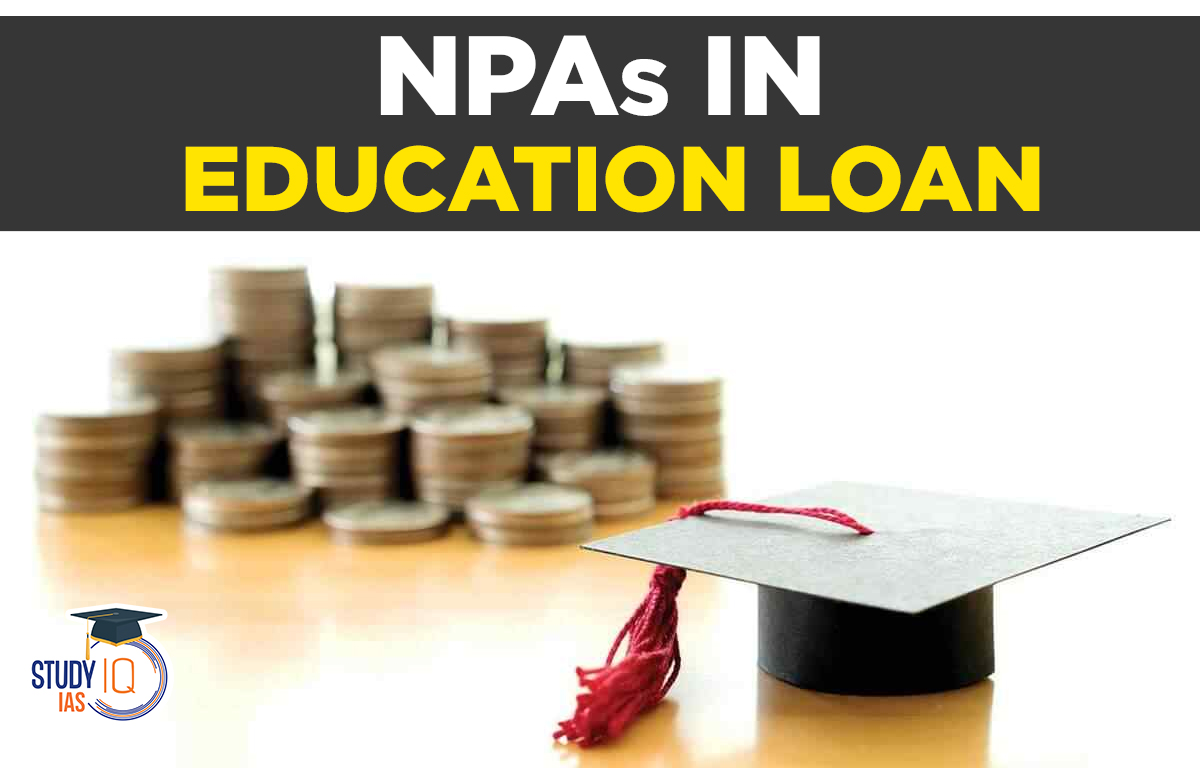Table of Contents
About Education Loan
- According to the model loan scheme, education loans of up to Rs 4 lakh don’t require any collateral to be provided by the borrower, education loans of up to Rs 7.5 lakh can be obtained with collateral in the form of suitable third-party guarantee, and education loans above Rs 7.5 lakh require tangible collateral.
- In all these cases, co-obligation of parents is necessary.
- Relaxation in Education Loans: Students get a moratorium period of up to 12 months after they complete their studies.
- Example: For a four-year BTech course, the repayment starts only after the completion of the fifth year if the student fails to get a job.
- The repayment starts early if the student starts earning.
- Interest rates: Interest rate under the various schemes consists of a markup of 2-3 per cent above the marginal cost of funds based lending rate (MCLR)/external benchmark, based on the reputation of the course/institutions.
- The repayment period is in the range of 10-15 years.
Credit Guarantee Fund Scheme for Education Loans (CGFSEL)
- Education ministry’s department of higher education handles it.
- As per this scheme, credit guarantee is provided for education loans covered under Indian Banks’ Association (IBA) model education scheme up to Rs. 7.5 lakh without any collateral security or third party guarantee.
Vidya Lakshmi Portal
- It is a first of its kind portal for students seeking Education Loan.
- It has been developed under the guidance of Department of Financial Services, (Ministry of Finance), Department of Higher Education (Ministry of Education) and Indian Banks Association (IBA).
NPAs in Education Loan News
- Public Sector Banks (PSBs) are the largest lender in the education loan sector and have a market share of about 91 per cent. RRBs (regional rural banks) and private banks constitute the remaining 9 per cent of the market.
- Data on NPAs in education loans of PSBs show that the default rate is much lower for loans disbursed to students in premier institutes as compared to those in secondary institutes.
- About 239 institutes like the IITs, IIMs, NITs and AIIMS are categorised as premier institutes by banks.
- Affected Banks: 4.7 per cent of the total education loans disbursed by the State Bank of India, Canara Bank, Union Bank of India and Indian Overseas Bank have turned into NPAs.
- These four banks together constitute about 65 per cent of the total loan portfolio of PSBs.
- Reason: Defaults in the low-end segment may have aggravated post-Covid.
- The issue of joblessness among students passing out of medium-level institutes has aggravated post-Covid, leading to such a situation.
Impact of NPAs in Education Loan
- Slowing Lending: Due to high rate of defaults in low-value education loans of PSBs, banks have slowed such lending, impacting students enrolled in secondary institutes across the country.
- Education loan disbursal target for public-sector banks during the current financial year has been set at about 13.5 per cent lower than total disbursal by all scheduled commercial banks in the FY22.
- This unwillingness by banks to lend to that segment will continue and they may compensate by opting for high-value loans, which are relatively secure.
Non Performing Asset (NPA)
It is a loan or advance for which the principal or interest payment remained overdue for a period of 90 days.
Categories of NPA:
- Sub-Standard Assets: An asset is classified as a sub-standard asset if it remains as an NPA for a period less than or equal to 12 months.
- Doubtful Assets: An asset is classified as a doubtful asset if it remained as an NPA for more than 12 months.
- Loss Assets: An asset is considered as a loss asset when it is “uncollectible” or has such little value that its continuance as a bankable asset is not suggested.
- However, there may be some recovery value left in it as the asset has not been written off wholly or in parts.


 Serious Fraud Investigation Office (SFIO...
Serious Fraud Investigation Office (SFIO...
 Article 142 of Indian Constitution, Sign...
Article 142 of Indian Constitution, Sign...
 Pakistan-Occupied Kashmir (PoK): History...
Pakistan-Occupied Kashmir (PoK): History...





















